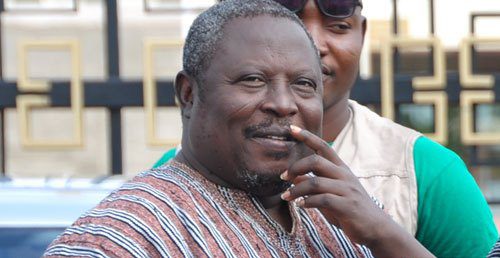Former Special Prosecutor Martin Amidu has raised alarms over the Speaker of Parliament, Alban Bagbin’s recent decision to adjourn Parliament “sine die,” arguing that this move has exacerbated the ongoing political stalemate.
Amidu contends that Bagbin should have sought judicial clarification on the contentious interpretations of Article 97, rather than escalating the matter within Parliament.
In his extensive article titled “Pulling the 1992 Constitution from the Brink of the Precipices,” Amidu warns that the political manoeuvring within Parliament threatens to undermine Ghana’s 1992 Constitution.
He highlights the recent parliamentary clashes in October as a significant risk to the country’s constitutional order, suggesting that political elites are prioritizing personal gains over national interests.
Amidu pinpointed events on 15, 17, 18, and 22 October as alarming indications of partisanship overshadowing national interests. “These orchestrated moves are placing our Constitution on the brink of dysfunctionality,” he stated, urging non-partisan activists to protect it from the divisive interests of the two major parties, the National Democratic Congress (NDC) and the New Patriotic Party (NPP). The conflict centers around interpretations of Article 97(g) and (h), particularly concerning the vacating of parliamentary seats.
After the NDC Minority invoked Article 97 to try to claim majority status in Parliament, the NPP countered by petitioning the Supreme Court. Amidu emphasized the Supreme Court’s authority, urging respect for its final judgments: “No political leaning or future expectation should excuse disrespect for the Court’s orders,” he declared.
Amidu also referenced incidents in Tamale, where NDC member Haruna Iddrisu allegedly stoked political tension by advocating for NDC’s majority declaration based on Article 97(g). This move, Amidu argued, sparked a cycle of escalation, prompting the NPP’s legal response.
Reflecting on his experiences with the judicial system, Amidu conveyed the importance of respecting judicial authority, citing a prior case where a controversial Supreme Court ruling became binding until overturned. “Law is not always morality,” he remarked, underscoring the rule of law over personal views.
Ultimately, Amidu called for a unified approach to preserve the 1992 Constitution’s stability. “Our democracy depends on moving beyond transactional politics and short-sighted ambitions,” he emphasized, warning that if the Constitution fails, only the judiciary will remain to provide interim stability.

















